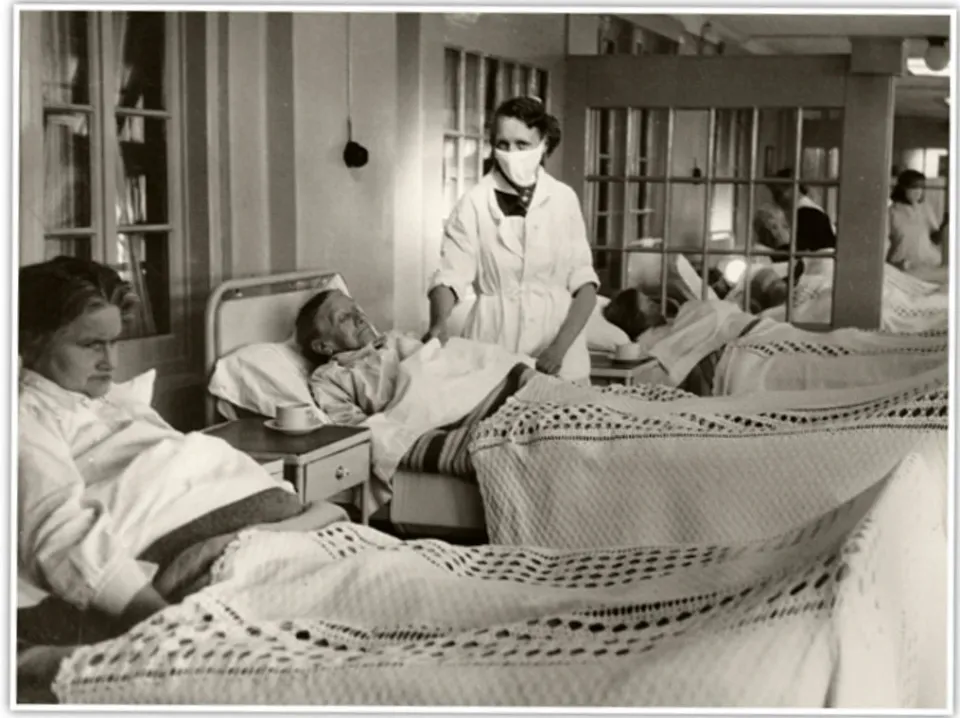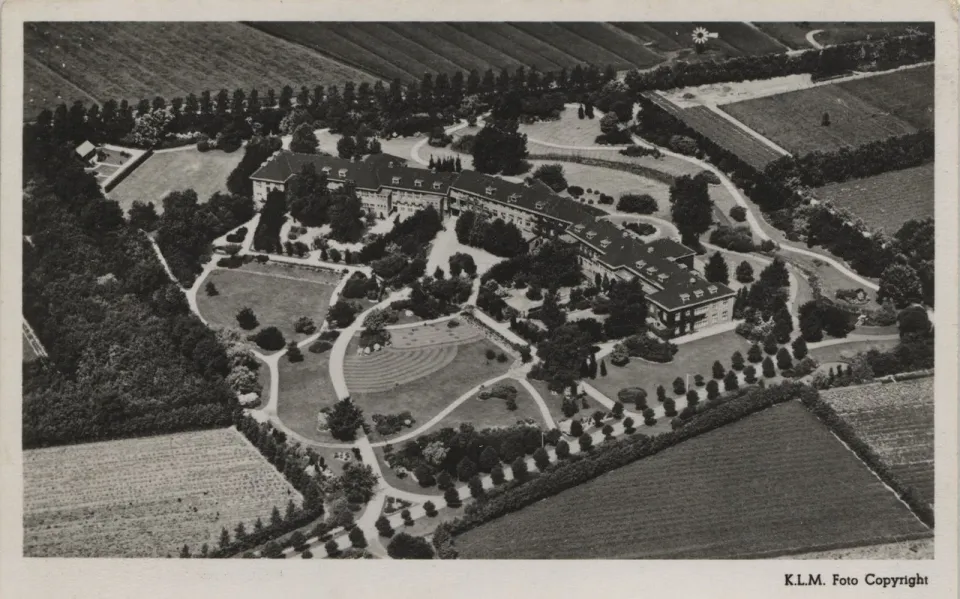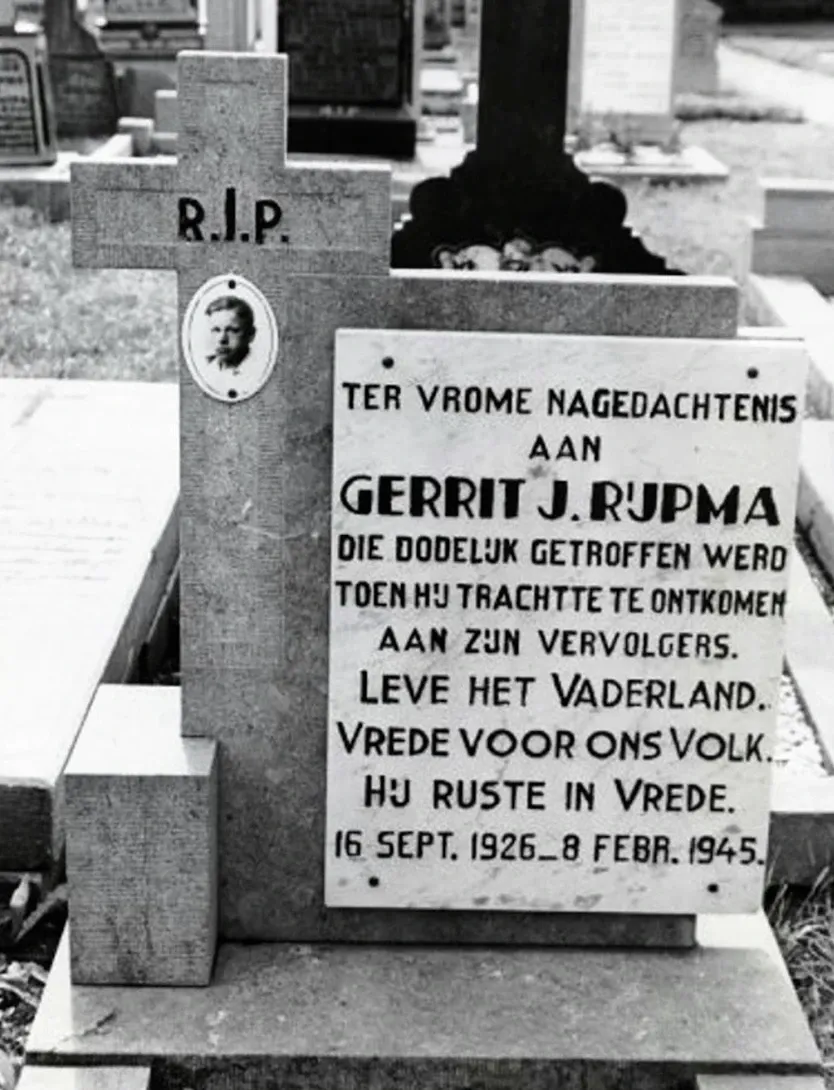Locations
481 to 504 of 5389 results
-
11Fountains Sloten
11Fountains Sloten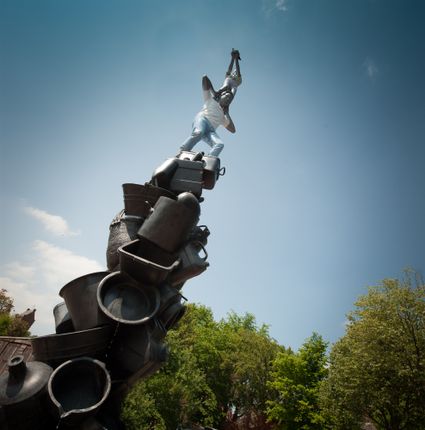 Sloten
Sloten
from your location
-
Breewar
Breewar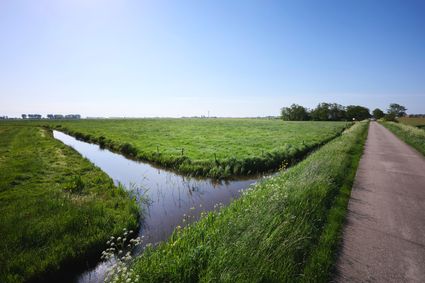 Parrega
Parrega
from your location
-
Schelp van de Waddenoester
Schelp van de Waddenoester Wierum
Wierum
from your location
-
Psychiatrische zorg in oorlogsomstandigheden
Psychiatrische zorg in oorlogsomstandigheden
Het Psychiatrisch Ziekenhuis (de PZ) in Franeker was en is een begrip in Friesland. Tijdens de bezetting moest het, naast de achthonderd eigen patiënten, ook bewoners van twee andere instellingen onderdak bieden. De bezetters hadden hun gebouwen gevorderd. Ook andere oorlogsslachtoffers, waaronder evacués uit Limburg, werden opgevangen en verzorgd. En was de TBC-afdeling een ideale plek voor onderduikers.
In de laatste oorlogsmaanden voorzien de keukens van het ziekenhuis al die mensen, en ook nog een groot deel van de Franeker bevolking, van eten.
In 1930 is ten westen van de stad een gloednieuwe en moderne huisvesting verrezen, Groot Lankum genaamd. Het oude onderkomen in de binnenstad (het “Binnengesticht”) blijft daarnaast ook in gebruik. De behandeling van psychiatrische aandoeningen staat nog in de kinderschoenen, medicijnen zijn er nog niet. Patiënten liggen de hele dag in bed, niets te doen.
Het ziekenhuis heeft een TBC-afdeling, die vanwege het besmettingsgevaar geïsoleerd is van de rest van het gebouw. Dat maakt het een perfecte onderduikplaats, de bezetter staat niet te trappelen om daar te controleren . . .
Het is februari 1943 als de Duitsers het Psychiatrisch Ziekenhuis Vogelenzang in Bennebroek vorderen. 369 Patiënten en 100 medewerkers moeten weg en worden met treinen naar Franeker overgebracht. De Franeker patiënten uit het Binnengesticht verhuizen naar de grote zolderverdieping van het nieuwe Groot Lankum, om plaats te maken voor de gasten. De ruimte is veel te krap, maar er is geen keuze.
Als de geallieerde opmars het zuiden van Nederland bereikt, stagneert het front en is vooral de provincie Limburg een tijdlang strijdgebied. Bewoners moeten worden geëvacueerd. In januari 1945 arriveert een trein vol mensen uit Roermond en omgeving na een barre reis verzwakt en hongerig in Franeker. Voordat ze kunnen worden ondergebracht bij gastgezinnen in de omliggende dorpen, worden ze door de medewerkers van de PZ verzorgd en van eten voorzien. Zieken worden opgenomen in het toch al overvolle ziekenhuis.
Alsof het allemaal nog niet moeilijk genoeg is, komen er op 27 maart 1945 ook nog eens 528 patiënten met hun verplegers van het Psychiatrisch Ziekenhuis Dennenoord uit Zuidlaren bij. De panden daar moeten op last van de bezetters op stel en sprong worden ontruimd, want er moet een Duits noodhospitaal in worden gevestigd. De keukens van de PZ moeten alle zeilen bijzetten om de vele monden te voeden. Gelukkig is men eerder al begonnen met het verbouwen van grote hoeveelheden groenten op de terreinen en worden er veertig varkens gehouden voor de vleesbehoefte. Boeren uit de omgeving leveren aardappelen en rapen. Per dag gaat er 3600 kilo aan aardappelen doorheen.
In de allerlaatste dagen voor de bevrijding van Franeker, die uiteindelijk op 15 april plaatsvindt, komt er nog een Duitse order om de PZ te ontruimen, om plaats te maken voor gewonde Duitse soldaten. Maar zover komt het niet meer, de Canadese bevrijders zijn al in aantocht en de bezetters vertrekken halsoverkop.
Een televisiedocumentaire van Omrop Fryslân (deels Friestalig) over de PZ in oorlogstijd ziet u hier.
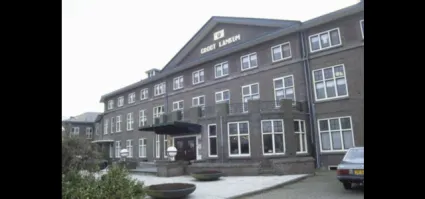 Franeker
Franeker
from your location
-
-
De Knolle en de Geitenmeijerij
De Knolle en de Geitenmeijerij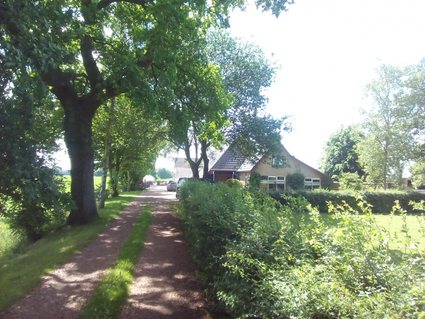 Fochteloo
Fochteloo
from your location
-
De Koken
De Koken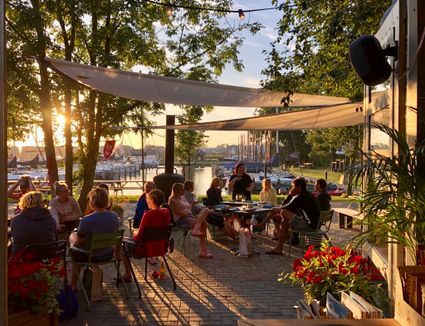 Akkrum
Akkrum
from your location
-
Het Molenhuis
Het Molenhuis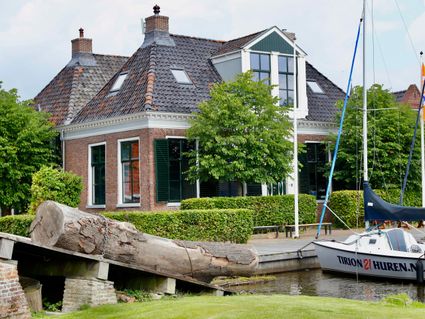 Woudsend
Woudsend
Direct boekbaar
from your location
-
Haven Suderkade Grou
Haven Suderkade Grou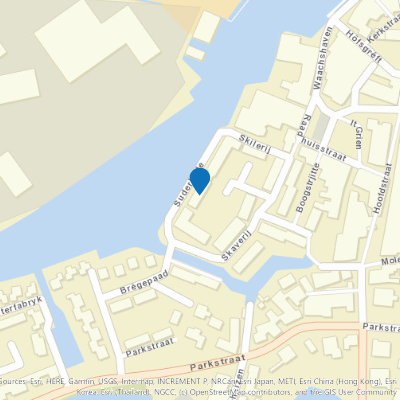 Grou
Grou
from your location
-
Makkumernoordwaard Nature Reserve
Makkumernoordwaard Nature Reserve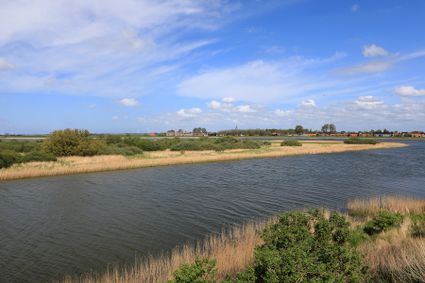 Makkum
Makkum
from your location
-
Gemaal Roptazijl
Gemaal Roptazijl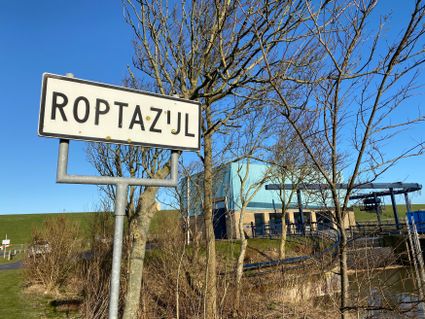 Wijnaldum
Wijnaldum
from your location
-
Luxe Vakantie Friesland - Haailân
Luxe Vakantie Friesland - Haailân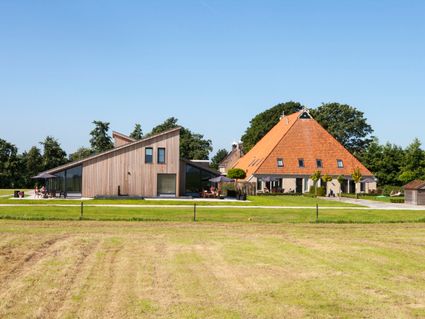 Snikzwaag
Snikzwaag
Direct boekbaar
from your location
-
De Bûtenpleats
De Bûtenpleats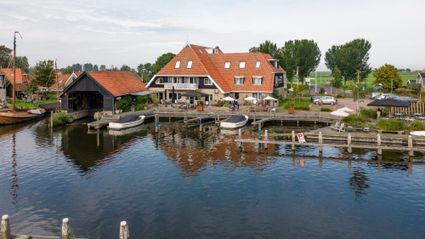 Workum
Workum
from your location
-
Harlingen Staete, Bed and Breakfast and Meeting, Training and Inspiration Centre
Harlingen Staete, Bed and Breakfast and Meeting, Training and Inspiration Centre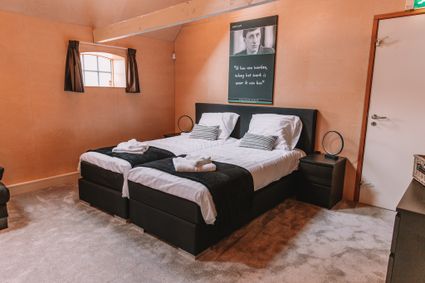 Harlingen
Harlingen
from your location
-
Aanlegplaats Menaam | Ballensvaart
Aanlegplaats Menaam | Ballensvaart Menaam
Menaam
from your location
-
Camping Pasveer
Camping Pasveer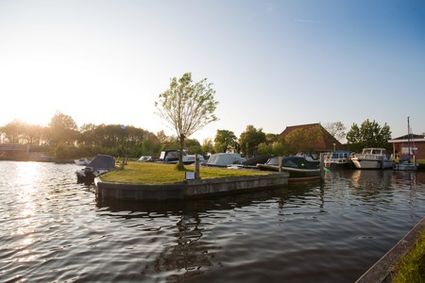 Sneek
Sneek
from your location
-
Gedicht: As it iis brekt | Albertina Soepboer
-


Accept cookies to see this content.
Gedicht: As it iis brekt | Albertina Soepboer
AS IT IIS BREKT
as it iis brekt
safolle en ik wit it net mear, mar skerpe redens ride my tebek, tebek
skuorren yn de tsjustere iisbaan fan myn doetiid: it read op de muorre
do hiest neitocht oer hoe’t wy ferdele koenen, de wrâld in better plak
april kaam rûzich, de hynsteblommen waarden dwylsinnich
myn fingerseinen op dyn hûd
in pear nachten waard ik
dy stjer op sterk iis
gjin man gjin frou mar fierder
en ja, hillich skreaust
hjoed lis ik myn hert del tusken stof en tiid
ik sjoch hoe’t fjoer en woastenij op ‘t heden oeral wenje
dat de wite mannen op it plein alle dagen oarlochje boartsje
dat bern dêr de revolúsje ferklearre hawwe oan har eigen tiid
en myn triennen net mear ophâlde kinne
ferdomme, ik tink oan dyn hannen
as it iis brekt Beetsterzwaag
Beetsterzwaag
from your location
-
-
"Siet u Selfs"
"Siet u Selfs" Heeg
Heeg
from your location
-
Tourist Information Balk
Tourist Information Balk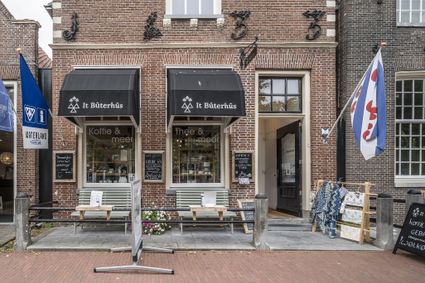 Balk
Balk
from your location
-
Poem 'Graf te Blauwhuis'
Poem 'Graf te Blauwhuis'
The small village of Abbega and the neighbouring hamlet of Abbegaasterketting hid dozens of people in hiding during the war. In February 1945, a raid shocked the small community. Resistance fighter Gerrit Rijpma, 18, was fatally hit in the process. The famous Dutch writer Gerard Reve, who lived next door to a sister of Gerrit Rijpma in nearby Greonterp from 1953 to 1971, was deeply moved by the story of his neighbour's youngest brother. As a tribute to Gerrit, he wrote the poem 'Graf te Blauwhuis'.
According to witnesses, as many people in hiding lived in Abbega and the neighbouring hamlet of Abbegaasterketting as civilians.
Among them were Jewish people in hiding, people who had participated in railway strikes, deserters and young men from the surrounding area who wanted to avoid forced labour. Weapons for the resistance were also hidden there.
Abbegaasterketting was located next to the Bolswardervaart canal, and the absence of paved roads made access difficult. In addition, the inhabitants had implemented an ingenious alarm system: by means of an electric bell, people warned each other when something was wrong, and two people in hiding were on guard every night.
On 8 February 1945, at around half past eleven in the morning, the alarm bell sounded in the Rijpma family home. At that time, the brothers Yp and Gerrit were working in the barn.
When they went outside, they saw a lot of people running away in panic. This is why the brothers decided to sail down the Bolswardervaart, which divides the hamlet in two pieces, in a rowing boat. They hoped that they could get themselves to safety a little bit further on in a bend of the canal, behind the net. On their way there, they picked up their neighbour Minze van der Veen and a person in hiding, who were standing on the other side of the canal. Meanwhile, the German soldiers, aided by members of the Landwacht, a Dutch semi-military organisation, had set off in pursuit and opened fire on the fleeing people. Minze van der Veen was hit in his right elbow. Gerrit was hit three times: one bullet went straight through his body, another lodged in his back, and the third bullet went through his cheeks and teeth. Because the occupiers refused to help, Yp had to carry his dying brother to the boat and take him to a farmhouse nearby all by himself. The help from a woman living in the neighbourhood, who was a nurse, came too late. In great haste, curate Stolwijk of Blauwhuis was sent for, who administered the last rites to Gerrit. He died shortly afterwards. He was buried in the Catholic Cemetery in Blauwhuis.
The famous Dutch writer Gerard Reve, who lived in nearby Greonterp next to a sister of Gerrit Rijpma from 1953 to 1971, was deeply touched by the story of his neighbour's youngest brother. As a homage to Gerrit, he wrote the poem 'Grave in Blauwhuis':
GRAVE IN BLAUWHUIS (for neighbour H., in G.) He ran away, but did not escape, and was hit, and died, eighteen years old. A militant inscription cries out loud, but a sad and silent face looks out from the brown enamelled portrait. Still a child. Goodbye dear boy. You, who are King, of this and that, of whatever, yes, You, answer me, You know why, I don't. That Kingdom of Yours, remember, will it ever be?
In 1983, the mortal remains of Gerrit were transferred from the cemetery of Blauwhuis to Loenen National War Cemetery.
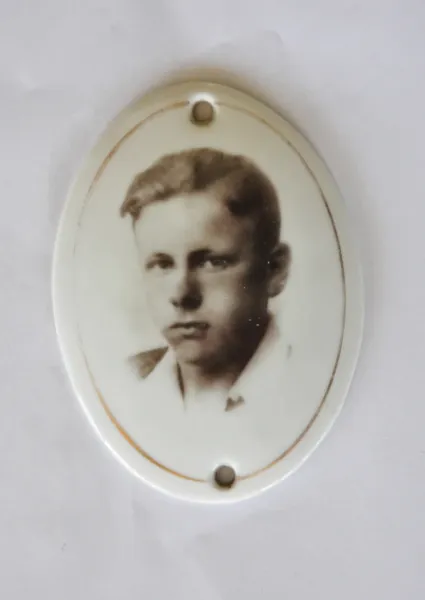 Greonterp
Greonterp
from your location
-
-
Scharsterrijnbrug
Scharsterrijnbrug Scharsterbrug
Scharsterbrug
from your location
-
Padel Friesland
Padel Friesland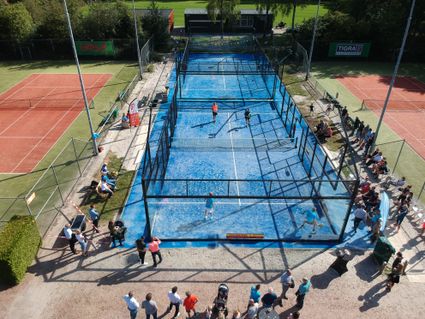 Heerenveen
Heerenveen
from your location
-
Crush Concept Store
Crush Concept Store Dokkum
Dokkum
from your location
-
Beach Resorts Makkum - Appartement Zuiderzee State
Beach Resorts Makkum - Appartement Zuiderzee State Makkum
Makkum
Direct boekbaar
from your location
-
Monument De Pierensteekster 'Wjirmdolster'
Monument De Pierensteekster 'Wjirmdolster' Wierum
Wierum
from your location

